IMER Bergen 15 year anniversary conference and phd course
En overraskende forskningsferd Yngve Lithman har opplevd både trams, trassel og larmerier av alle slag som leder for IMER gjennom 12 år. Men mest av alt har det vært en intellektuelt overraskende reise. I dag fyller migrasjonssatsingen 15 år. (Intervju med Yngve G. Lithaman i anledning IMER Bergens 15 års jubileum)
De nye jødene Elisabeth Eide tror ikke på at historien gjentar seg selv, men ser likevel mange likhetstrekk mellom 1940-tallet og i dag. Forskjellen er at muslimene er de nye jødene. (Intervju med Elisabeth Eide i anledning IMER Bergens jubileumskonferanse)
Misplaced women On Tuesday November 8 from 13:40 I performed my “Misplaced Women?” at arrivals & departures terminal of Bergen international airport. In approximately 30 minutes time I took out the entire contents of my two suitcases, out of my handbag as well as out of my cosmetics and make-up bags. (Read more and see the photos from the performances in Bergen previous to Tanja Ostojic’s performance lecture at Gallery 3,14)
***********************
International migration and attendant processes of globalization, both as social phenomena and in efforts at theorization, have become especially critical for the development of social theory and analysis, notably by challenging some of the fundamental questions of the social sciences. If one wishes, as Georg Simmel did, to answer the question “How is society possible?”, one cannot take for granted that the relevant object is defined within the parameters of the nationstate, nor by those of ´ethnic groups´ or ´cultures´.
In a recent evaluation report on Norwegian sociology research, it is stated that ´[t]he key question to be explored by sociology today is not, perhaps, how society is possible, but rather how to study social processes and changes at local, national and global levels (Sociological research in Norway: An evaluation, p. 17). Across the social science disciplines, it now seems impossible to imagine place, society and culture without the mobilities of people, goods and information – thus recasting questions exploring e.g. social stratification, scale, space, media and politics.
In its 15 years of existence, IMER Bergen has directed its collaborative efforts towards examining, but also reframing the fundamental questions of the social sciences, as variously defined within particular disciplines. To celebrate this 15th anniversary, we want to put to the forth the contributions that IMER research in Bergen, but also in the wider international scholarly community, has made to the study of society in general, processes of social change and new social formations in particular.
A combination of international and local scholars will in the course of a two day seminar, discuss how IMER researchers deal with issues such as migration, globalization and transnational movements – how they examine ‘culture’, ´politics´, ´space´, ´gender´, ´media´, ´government´ and ´law´ – through the prism of International Migration and Ethnic Relations.
A commitment to provide a strong and creative scholarly environment for students and research recruits has been one of IMER Bergen´s main vocations. In this spirit, the 15th anniversary comprises a PhD course for candidates within the humanities and social sciences. In addition to the main conference, the course component of the conference will be constituted by workshop sessions with essay presentations.
Programme
Wednesday 9 November Anniversary conference. OPEN LECTURE:
Venue: ‘Egget’, Parkveien 1: 10.15-10.30: Official opening with Dean of the Faculty of Social Sciences, Knut Helland, and Director of the Uni Rokkan Centre, Jan Erik Askildsen. 10.30-12.00: • DAVID LEY (University of British Columbia): “Masters of Space, or Prisoners of Space? Locating the Neoliberal Migrant” • YNGVE G. LITHMAN (University of Bergen): ”De-Etatizing Social Science?: “Verstehen” and “Erklärung” in a (somewhat) Flatter Earth”
Chair: Edvard Hviding (Department of Social Anthropology, University of Bergen)
12.15-13.15: Lunch.
Venue: Auditorium, Bergen Resource Centre, Jekteviksbakken 31: 13.15-14.45: • HAKAN G. SICAKKAN (University of Bergen): “The Politics of Diversity, the European Publics, and the European Public Sphere”
• METTE ANDERSSON (University of Bergen): “‘Reflexive Transnationalization’ among Politically Engaged Minority Youth” [Read interview with Mette Andersson in På Høyden 7 November]
Chair: Susanne Bygnes (Department of Sociology, University of Bergen)
14.45-15.00: Coffee break.
15.00-16.30:
• RANDI GRESSGÅRD (University of Bergen): “Equality Equals Hierarchy – the Holistic Foundation of Liberal Ideology and Integration Policy” • BRUCE KAPFERER (University of Bergen): ”The Tamil Crisis: State, War and Peace in Sri Lanka and Shifts in Global Power”
Chair: Kathinka Frøystad (Department of Social Anthropology, University of Bergen)
Thursday 10 November Anniversary Conference. Venue: Auditorium, Bergen Resource Centre, Jekteviksbakken 31:
10.15-11.45:
• CHRISTINE M. JACOBSEN (Uni Research and University of Bergen): “The (not so) New Islamic Presence in Western Europe: Secular Governance and Religious Freedom in a Globalized Era” • ANDRÉ ITEANU (Centre National de la Recherche Scientifique (C.N.R.S.), Paris): “The Free Noble and the Poor Beggar. What does the Veil Controversy Reveal about French Ideology”
Chair: Synnøve Bendixsen (IMER Bergen and Uni Rokkan Centre)
12.00-13.00: Lunch.
13.00-14.30: • SUSI MERET (University of Aalborg): “Exploring the Social, Political and Cultural Challenges of Right Wing Populism in the Nordic Countries: Comparative Approaches, Developments and Perspectives”
• ELISABETH EIDE (Oslo University College and University of Bergen): “Media Discourses, Migration and Post-22.7-Debates; a Critical Inquiry”
Chair: Elisabeth Ivarsflaten (Department of Comparative Politics, University of Bergen)
14.30-14.45: Coffee break.
14.45-16.30: PANEL DISCUSSION: “The Future of IMER Research”
David Ley (University of British Columbia) Susi Meret (University of Aalborg) Hilde Lidén (Nordic Migration Research and Institute for Social Research, Oslo) Yngve G. Lithman (IMER Bergen and University of Bergen) Mette Andersson (IMER Bergen and University of Bergen) Hakan G. Sicakkan (IMER Bergen and University of Bergen)
Chair: Yngve G. Lithman (IMER Bergen and Department of Sociology, University of Bergen)
* * *
19:00: Performance lecture by artist TANJA OSTOJIC: “Crossing Borders“. Venue: Galleri 3,14. Vågsallmenningen 12. Free entrance. Refreshments will be served. In addition, her project “Misplaced Women? Marking the City” is a series of performances, interventions and delegated performances which will take place in the public space of Bergen previous to the lecture. In collaboration with the International Contemporary Art Foundation 3,14. Friday 11 November PhD course. PhD candidates, please see the Course Site for more information.
Venue: Seminar room, Uni Rokkan Centre, Nygårdsgt. 5, 6th floor. 10:15-16:30: Essay presentations. Conference fee: Nok 500,- for two days (includes lunch) Students: Nok 300,- REGISTRATION to Hanna Skartveit. Still possible to register!
The Conference is organised in collaboration with Uni Rokkan Centre, Dept. of Social Anthropology, Dept. of Sociology, Dept. of Geography, Dept. of Comparative Politics and SKOK, University of Bergen.
Halvar A. Kjærre: “Politics and Mobilities”
Tarje I. Wanvik: “Migration and Social Inequalities”
Halvar A. Kjærre (Department of Social Anthropology, UiB) and Tarje I. Wanvik (Department of Geography, UiB) have recently been recruited to the IMER Bergen research unit as PhD candidates.
In this seminar they will present their PhD projects. After the presentation there will also be a presentation of IMERS new webpages.
«Mobilitet, moral og migrasjon: familisme – begrepet i norske og italienske kontekster.»
Seminaret tar for seg hvordan middelhavslandenes familisme – begrep konstrueres og erfares i migrasjons-kontekster blant nordmenn i Italia og italienere i Norge. Dagens familisme utfordres både av «post-moderne” endringer i familie-strukturen, slik som lav fertilitet og stigende skilsmisse-rater, og av finanskrise og migrasjon.I Sør-Europa eksisterer lav fertilitet side om side med tradisjonelle omsorgs-organiseringer og parallelt med kontant-tunge velferdsprogrammer og begrenset produksjon av tjenester for de unge og de eldre. Den sentrale oppfatningen i komparative studier av relasjonen mellom familie og velferd er at velferdsstatene baserer politikken på en «tatt-for-gitt» holdning til en kjønnstradisjonell familie-institusjon, og denne kulturelle forutsetningen sementerer de tradisjonelle familie-strukturene. Men i hvilken grad er familiestrukturer og kulturelle og sosiale normer og verdier bundet sammen med idealtypiske regimer og nye migrasjonsmønstre?Nyere forskning viser til at sør-europeiske kvinner drømmer om den nordiske velferdsstaten eller en stat som organiserer familie -og arbeidsbalansen bedre. De vil ha tilgang på flere og bedre offentlige omsorgstjenester. Nordiske velferdsstater framstår som reneste paradiser for kvinner i Italia, og definitivt som et ideal, hevder samfunnsforskere. På den andre siden ser vi at mens italienere drømmer om velferd og arbeid, drømmer nordmenn om mer familieliv. En av de norske informantene i mitt prosjekt sier at hennes drøm er «å få til et italiensk familieliv kombinert med et norsk arbeidsliv». Hvordan er forbindelsen mellom familie-strukturer og familie-verdier? Hvordan er de relatert til mobilitet, moral og migrasjon?
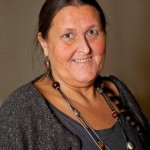 Lise Widding Isaksen er professor i sosiologi på Universitetet i Bergen. Hun jobber for tiden med prosjektene 1) «Mobilitet, moral og migrasjon: en studie av familiekulturer i Norge og Italia» , 2) «Polish Female Migrants and Their Families: A Study of Care Deficits» og 3) «Welfare Models, Demographic Patterns and Family Strategies in the Context of the Financial Crisis in Spain»
Lise Widding Isaksen er professor i sosiologi på Universitetet i Bergen. Hun jobber for tiden med prosjektene 1) «Mobilitet, moral og migrasjon: en studie av familiekulturer i Norge og Italia» , 2) «Polish Female Migrants and Their Families: A Study of Care Deficits» og 3) «Welfare Models, Demographic Patterns and Family Strategies in the Context of the Financial Crisis in Spain»
Siste publikasjoner:
Lise Widding Isaksen, 2010 (ed): Global Care Work. Gender and Migration in Nordic Societies. Nordic Academic Press, Lund, Sverige
Lise Widding Isaksen (2012) “Transnational Spaces of Care: Migrant Nurses in Norway.” In Social Politics, International Studies in Gender, State and Society, vol. 19, number 1, spring 2012, p.58-78, Oxford University Press, Oxford
“Children Left Behind” i samarbeid med Uma Devi og Arlie R. Hochschild i Hochschild, Arlie R., 2013: «So How’s the Family» and other essays», University of California Press, Berkeley
Communicating Migration Seminar Series IMER Bergen spring and autumn 2014
The IMER seminar series for 2014 will cover how migration and ethnic relations are communicated in every-day encounters, in mass and social media, in politics and in teaching at the universities. Has the way people talk about migration and migrants in different social contexts changed over time, and in which ways has it changed? How does migration theory and research fit in with other topics and theories in the social sciences, and how do results from migration research inform public debate and policy development? Communicating migration will be discussed from various angles in our seminar series on international migration and ethnic relations during spring and autumn 2014. We welcome papers that touch upon this broad theme from different angles. Historical analyses of change over time in regard to politics and public debate, research foci and disciplinary concerns are specifically welcomed. The seminar series will end with a two-day conference in October/November 2014.
The Children of the Revolution: Reflections on Chinese London and how to Theorise these New Forms of Migration
This paper explores some of the London data from a three-city investigation of migration. The other two cities are Beijing and Hong Kong, and in each city we are exploring young (23-39) graduate migrants from the other two cities in order to understand how global mobility features in young professionals’ life and career planning. Little has been written about UK migrants in Hong Kong and Beijing, and the existing literature on Chinese migrants in London is centred on long-term (often depicted as poor and illegal) migrants from Hong Kong. Such studies do not begin to capture the lives of the new young migrants, many of whom are from Mainland Chinese cities, who must navigate new border restrictions favouring the wealthy and the highly talented. The paper will explore some of the challenges to existing migration theory these young urban migrants pose.
Caroline Knowles
 Caroline Knowles is Professor of Sociology and former director of the Centre for Urban and Community Research (CUCR) at Goldsmiths, University of London. She is known for her work with artists and photographers exploring the intersections between art and sociology in urban social research. Following her interest in materials and translocality she has just completed the biography of a pair of flip-flop sandals funded by the Leverhulme Trust with Singapore artist Michael Tan. Flip-Flop: A Journey Through Globalisation’s Backroads will be published in May by Pluto Press. Following her interests in migration she is also currently researching the Beijing, London, Hong Kong circuit travelled by young migrants in these three cities in collaboration with Ho Wing Chung at the City University of Hong Kong. She is the author of many books and papers on cities, ethnicity, migration and mobilities including Hong Kong: Migrant Lives, Landscapes and Journeys (2009) University of Chicago Press with US photographer and Sociologist Douglas Harper.
Caroline Knowles is Professor of Sociology and former director of the Centre for Urban and Community Research (CUCR) at Goldsmiths, University of London. She is known for her work with artists and photographers exploring the intersections between art and sociology in urban social research. Following her interest in materials and translocality she has just completed the biography of a pair of flip-flop sandals funded by the Leverhulme Trust with Singapore artist Michael Tan. Flip-Flop: A Journey Through Globalisation’s Backroads will be published in May by Pluto Press. Following her interests in migration she is also currently researching the Beijing, London, Hong Kong circuit travelled by young migrants in these three cities in collaboration with Ho Wing Chung at the City University of Hong Kong. She is the author of many books and papers on cities, ethnicity, migration and mobilities including Hong Kong: Migrant Lives, Landscapes and Journeys (2009) University of Chicago Press with US photographer and Sociologist Douglas Harper.
Communicating Migration Seminar Series IMER Bergen spring and autumn 2014
The IMER seminar series for 2014 will cover how migration and ethnic relations are communicated in every-day encounters, in mass and social media, in politics and in teaching at the universities. Has the way people talk about migration and migrants in different social contexts changed over time, and in which ways has it changed? How does migration theory and research fit in with other topics and theories in the social sciences, and how do results from migration research inform public debate and policy development? Communicating migration will be discussed from various angles in our seminar series on international migration and ethnic relations during spring and autumn 2014. We welcome papers that touch upon this broad theme from different angles. Historical analyses of change over time in regard to politics and public debate, research foci and disciplinary concerns are specifically welcomed. The seminar series will end with a two-day conference in October/November 2014.
Based on ethnographic fieldwork in Niger, Hans Lucht discusses how stranded migrants have become facilitators of the very journey they have failed to make themselves. These connection men, or ‘pushers’ as they say themselves, are now key actors in high-risk migration across the Sahara Desert via Libya to Europe. They have somehow turned all their misfortunes into a form of capital, while awaiting a new chance to go to Europe.
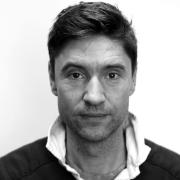 Hans Lucht is a senior researcher and journalist at the Danish Institute for International Studies (DIIS) in Copenhagen. He holds a PhD in anthropology from the Department of Anthropology, University of Copenhagen. His book on undocumented migration from West Africa to Europe (“Darkness before Daybreak – African Migrants Living on the Margins in Southern Italy Today”) won the 2012 Elliott P. Skinner Book Award from the Association for Africanist Anthropology.
Hans Lucht is a senior researcher and journalist at the Danish Institute for International Studies (DIIS) in Copenhagen. He holds a PhD in anthropology from the Department of Anthropology, University of Copenhagen. His book on undocumented migration from West Africa to Europe (“Darkness before Daybreak – African Migrants Living on the Margins in Southern Italy Today”) won the 2012 Elliott P. Skinner Book Award from the Association for Africanist Anthropology.
Seminar is held in cooperation between the Institute of Social anthropology and IMER BErgen.
Sans-papiers into workers: how historic strikes changed the public face of undocuemented migrants in France
From 2008 to 2010, with the support of a coalition of trade unions and immigrant rights groups under the leadership of the Confédération Générale du Travail (CGT), thousands of France’s undocumented migrant workers conducted strikes and occupied their workplaces, demanding that their employers sponsor their regulatisation applications. Unheard of in French migration and labour history, the mobilization was based on a recent change in legislation allowing employers to solicit the regularisation of a migrant by providing a formal job offer. While the French government’s original intent was to make access to legal status contingent on employer decision alone, union action broadened its scope by bringing the whole employment relationship into the process, including the stakeholders and labour rights built into it by decades of social struggles, such as the right to strike and the right for striking workers to occupy their company without police intrusion. Based on three years of extensive participant observation and more than a hundred in-depth interviews with migrant workers, union and civil rights organization staff and activists, employers in the restaurant, cleaning, temporary staffing and construction industries, and French national and local government officials, our paper considers the strategic challenges encountered by this innovative movement which broke simultaneously with the more traditional repertoires of both French trade unions and the ‘sans-papiers’ movements of the preceding decade.
Related to the topic Chavin has also worked on a documentary film that he will bring with him:
http://www.vezfilm.org/comingforavisit/
http://vimeo.com/53048336
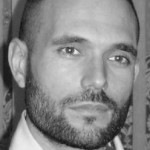 Sébastien Chauvin is assistant professor of Sociology at the the University of Amsterdam and a researcher at the Amsterdam Institute for Social Science
Sébastien Chauvin is assistant professor of Sociology at the the University of Amsterdam and a researcher at the Amsterdam Institute for Social Science
Research. He was a visiting lecturer at the University of Chicago from 2003 to 2006 and a
lecturer in sociology at the Université Paris 1-Panthéon Sorbonne from 2006 to 2008. He
conducted in-depth ethnographic fieldwork with mostly undocumented Hispanic immigrant
day laborers in the Chicago region, including the staffing industry that employed them, and
the social movements in which they mobilized, as part of his PhD dissertation (EHESS Paris,
2007). Since late 2007, he has been working on a collective study exploring the labor market
experience and following the union-supported mobilization of undocumented immigrant
workers in France. His main research deals with the relationship between civic inequality and
precarious work. He also keeps an active interest in gender and sexuality studies, social capital
and the sociology of elites, social theory, and the sociology of knowledge. He is the author
of a number of articles and book chapters, as well as Les agences de la précarité. Journaliers à Chicago (Paris: Le Seuil, 2010), Introduction aux études sur le genre (with L. Bereni, A. Jaunait, and A.Revillard ; Brussels : De Boeck, 2012, 2nd edition), and On bosse ici, on reste ici: La grève des sans-papiers: une aventure inédite (with P. Barron, A. Bory, N. Jounin, and L. Tourette ; Paris : La découverte, 2011).
Communicating Migration Seminar Series IMER Bergen spring and autumn 2014
The IMER seminar series for 2014 will cover how migration and ethnic relations are communicated in every-day encounters, in mass and social media, in politics and in teaching at the universities. Has the way people talk about migration and migrants in different social contexts changed over time, and in which ways has it changed? How does migration theory and research fit in with other topics and theories in the social sciences, and how do results from migration research inform public debate and policy development? Communicating migration will be discussed from various angles in our seminar series on international migration and ethnic relations during spring and autumn 2014. We welcome papers that touch upon this broad theme from different angles. Historical analyses of change over time in regard to politics and public debate, research foci and disciplinary concerns are specifically welcomed. The seminar series will end with a two-day conference in October/November 2014.
Note: Venue has changed: Anthropology, not Rokkansenteret.
OUT-reach! – Kommunikasjon av «frivillig retur» til irregulære migranter i Norge.
Hvordan kan en stat på best mulig måte gi informasjon om ”frivillig retur” til irregulære migranter? Bør ikke-statlige organisasjoner delta i denne oppgaven, eller vil det å påta seg slike oppgaver undergrave andre funksjoner disse organisasjonene har? Hvordan kommuniseres frivillig retur i dag, og finnes det alternative bedre måter å gjøre dette på?
”Frivillig retur” har fått sterk kritikk av forskere, migranter og organisasjoner for at deltagelse i slike program ofte mangler nettopp det frivillige elementet. Innen forskningen har ‘frivillig retur’ blitt sett som tett knyttet opp til tvangsretur, deportasjon og institusjoner som opprettholder statens grenser. I et slikt perspektiv blir tilbud om «frivillig retur” gjerne sett på som ikke mer enn en mildere variant av tvangsretur og i beste fall en form for obligatorisk retur. «Frivillig retur» er altså tett knyttet opp mot mye av elementer som ikke-statlige organisasjoner ofte har stilt seg kritiske til. Hva er da rasjonale som ligger bak at ulike ikke-statlige hjelpe- og advocacyorganisasjoner eller ulike diaspora- og migrantorganisasjoner tar på seg ansvaret for å formidle ”frivillig retur”? Og på den annen side, er overnevnte årsaker den eneste grunnen til at enkelte organisasjoner ikke velger å gi slik informasjon?
Basert på forskning tilknyttet en kommende UDI rapport i regi av Uni Rokkansenteret vedrørende informasjon om ”frivillig retur” til irregulære migranter utenfor mottak i Norge utforsker Bendixen og Kjærre det etiske og moralske grenselandet som er konteksten for informasjon om frivillig retur, hvordan ulike aktører stiller seg til slikt informasjonsarbeid, og til slutt hvordan de irregulære migrantene selv ser på denne informasjonen i lys av deres livssituasjon i Norge.
Synnøve Kristine Nepstad Bendixsen er postdoktor ved sosial antropologisk institutt i Bergen, og forsker på Uni Rokkansenteret hvor hun er tilknyttet prosjektet Provision of Welfare to Irregular Migrants (PROVIR). Hun har tidligere studert på London Scool of Economics og har en PhD fra Humboldt universitetet (Berlin) og Ecole des Hautes Etudes en Sciences Sociales (Paris). Hennes forskningsfelt er religiøsitetsutforming blant unge Muslimer i Berlin, samt flere forskningsprosjekter innen tema returmigrasjon og irregulær migrasjon, og hun har flere publikasjoner innen disse feltene.
Halvar Andreassen Kjærre er PhD stipendiat ved IMER/Sosialantropologisk institutt i Bergen og har publisert artikler og deltatt på flere forskningsprosjekter innen temaet irregulær/illegalisert migrasjon. Han er også tilknyttet prosjektet PROVIR og jobber for tiden med sin PhD om mobilitet blant irregulære migranter i Schengen/Europa. Tidligere prosjekter har vært ved NTNU samfunnsforskning i Trondheim, Sosiologisk institutt i Oslo, og han jobber nå sammen med Synnøve på overnevnt prosjekt ved Uni Rokkansenteret.
COMMUNICATING MIGRATION SEMINARS: ESPEN HELGESEN – “Your dad is looking for you” – Children’s perspectives on state intervention in immigrant families in Norway
Several recent international news stories have described state-initiated forced separation of children and parents in Norway, illustrating how local decisions in the Child Welfare Service can have widespread ramifications outside the families involved. In this paper I draw on ethnographic fieldwork among immigrant families in Kristiansand, Norway, to show how a group of children responded when one of their friends suddenly disappeared. The secrecy surrounding the inner workings of the Child Welfare Service led the children to frame the incident as a “kidnapping”, and several children expressed fear that they, too, would be separated from their families. Frustrated with the lack of an explanation of what had happened to their friend, the children turned to online worlds, where they could express their fears and concerns by sharing artwork with friends outside the adult gaze.
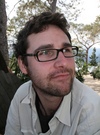 Espen Helgesen is a PhD candidate at the Department of Social Anthropology, University of Bergen, currently finishing his thesis on technology-mediated sociality and self-formation among children of immigrants in Norway.
Espen Helgesen is a PhD candidate at the Department of Social Anthropology, University of Bergen, currently finishing his thesis on technology-mediated sociality and self-formation among children of immigrants in Norway.
Communicating Migration Seminar Series IMER Bergen spring and autumn 2014
The IMER seminar series for 2014 will cover how migration and ethnic relations are communicated in every-day encounters, in mass and social media, in politics and in teaching at the universities. Has the way people talk about migration and migrants in different social contexts changed over time, and in which ways has it changed? How does migration theory and research fit in with other topics and theories in the social sciences, and how do results from migration research inform public debate and policy development? Communicating migration will be discussed from various angles in our seminar series on international migration and ethnic relations during spring and autumn 2014. We welcome papers that touch upon this broad theme from different angles. Historical analyses of change over time in regard to politics and public debate, research foci and disciplinary concerns are specifically welcomed. The seminar series will end with a two-day conference in October/November 2014.
BSRS 2014 Governance to meet Global Development Challenges
Welcome to BSRS2014!
The theme for BSRS2014 is Governance to meet Global Development Challenges. The event will take place from June 23rd to July 4th 2014 at the University of Bergen. Please find information about the courses, application form and other activities at the menu to your right side.
One of the courses is and IMER/SKOK PhD course.
Read more at:
http://www.uib.no/rs/bsrs/programme/bsrs-2014-governance-to-meet-global-development-challenges
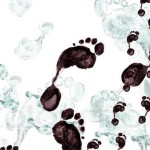 How might we think about race as a paradoxically fungible yet persistent feature of human history? This mini seminar examines race as a global phenomenon with long and diverse histories. In its migrations, conceptions of race have repeatedly been marshaled, decried, dismissed, and repurposed, reformulating conceptions of kinship and social organization along the way. From ancient empires, medieval religious conflicts, and early modern accounts of “barbarians” and “strangers” to the longue durée of colonial settlement and slavery, and from the revolutions and uprisings of the eighteenth, nineteenth, and twentieth centuries to more recent accounts of physiognomy, eugenics, and DNA, the phenomenon of race has interacted dynamically across time and space with conceptions of caste, color, class, language, identity, law, region, and religion. Our class will begin with a conventional genealogy of race as arising from the age of Atlantic Revolutions, the slave trade, and scientific thinking in Europe and the United States before complicating our understandings of the phenomenon as one shaped over centuries of contact and interchange. Our second session will examine a longer history of race and caste in relation to Iberian colonization of the East and West Indies and our third session will investigate race and the littoral in Indian Ocean studies. Registration deadline is August 8th, 2014.
How might we think about race as a paradoxically fungible yet persistent feature of human history? This mini seminar examines race as a global phenomenon with long and diverse histories. In its migrations, conceptions of race have repeatedly been marshaled, decried, dismissed, and repurposed, reformulating conceptions of kinship and social organization along the way. From ancient empires, medieval religious conflicts, and early modern accounts of “barbarians” and “strangers” to the longue durée of colonial settlement and slavery, and from the revolutions and uprisings of the eighteenth, nineteenth, and twentieth centuries to more recent accounts of physiognomy, eugenics, and DNA, the phenomenon of race has interacted dynamically across time and space with conceptions of caste, color, class, language, identity, law, region, and religion. Our class will begin with a conventional genealogy of race as arising from the age of Atlantic Revolutions, the slave trade, and scientific thinking in Europe and the United States before complicating our understandings of the phenomenon as one shaped over centuries of contact and interchange. Our second session will examine a longer history of race and caste in relation to Iberian colonization of the East and West Indies and our third session will investigate race and the littoral in Indian Ocean studies. Registration deadline is August 8th, 2014.
More info:
http://www.uib.no/skok/77000/phd-kurs-rase-migrasjon-og-slektskap
http://www.uib.no/en/skok/77008/graduate-course-race-migration-and-kinship

